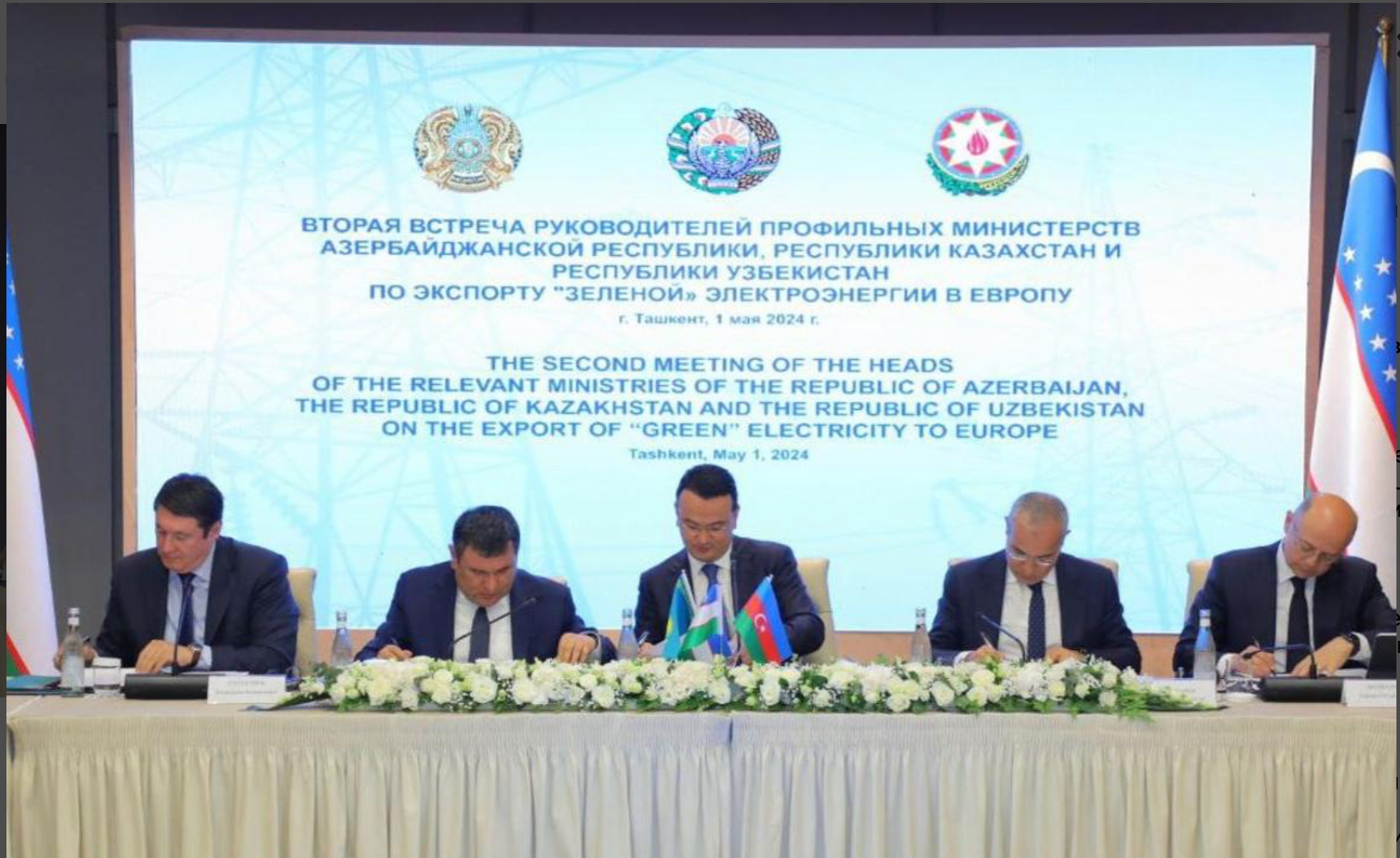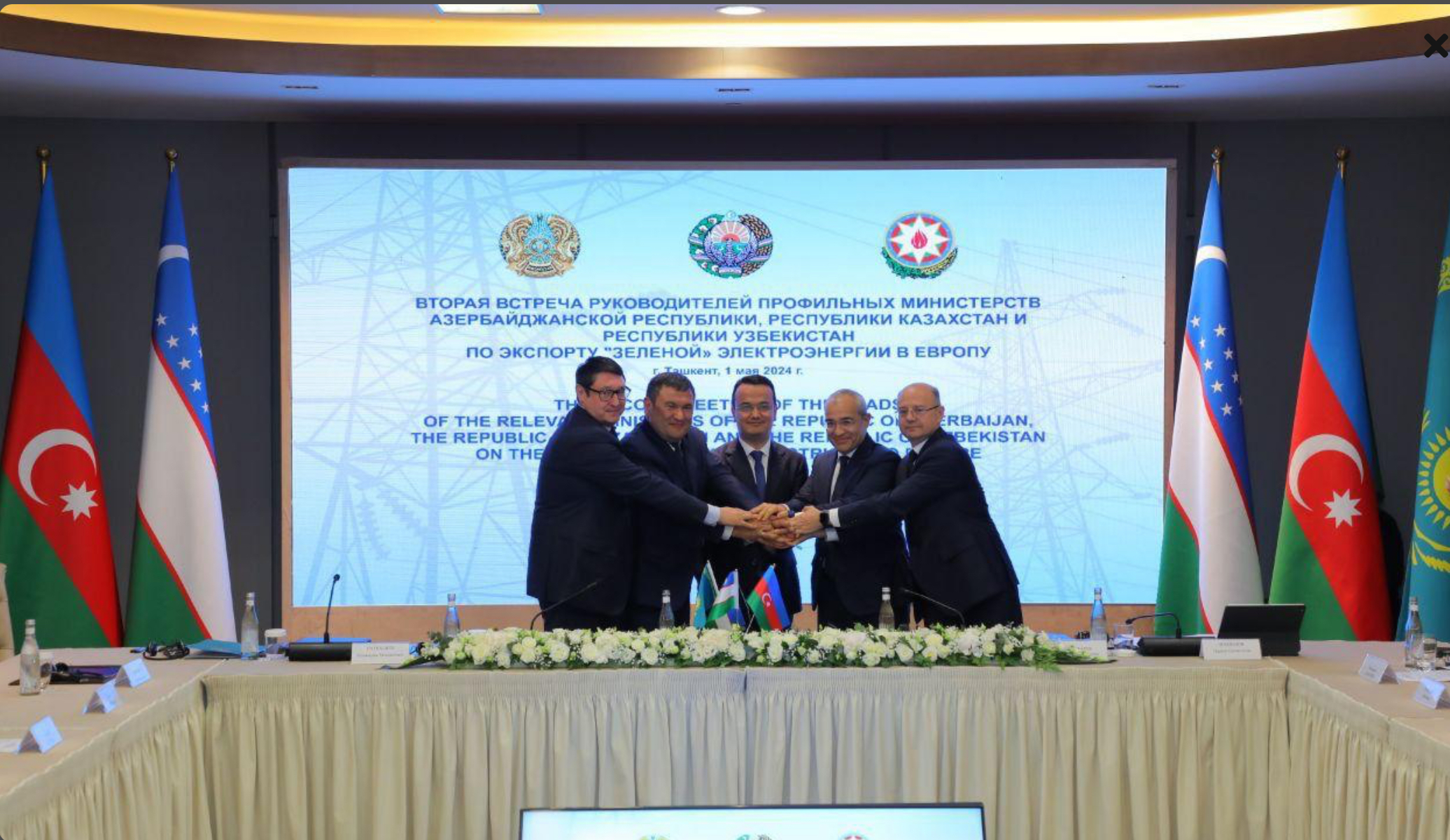The heads of the energy ministries of Kazakhstan, Azerbaijan, and Uzbekistan signed a memorandum of cooperation at the Tashkent International Investment Forum. The memorandum aims to pave the way for the interconnection of the energy systems of these nations.

The focal point of this collaboration lies in exploring the feasibility of laying a high-voltage cable along the bottom of the Caspian Sea, alongside ventures into other territories. This initiative holds the promise of facilitating optimal trade in green energy across the regions.
Almassadam Satkaliyev, the Minister of Energy of Kazakhstan, highlighted the preliminary steps taken in this ambitious project.
"A draft technical specification for the deployment of a deep-sea cable under the Caspian Sea has already been outlined," he stated.
This technical groundwork lays the foundation for the forthcoming stages of the project.
Satkaliyev outlined plans to develop a comprehensive business model for international transmission corridors, covering financing, revenue flow, and ownership. Additionally, the project aims to sell green energy to EU nations, opening up a significant market for sustainable energy sources.

The memorandum of cooperation, as outlined by Satkaliyev, represents a culmination of extensive discussions and agreement among the participating nations.
"Today, we have solidified the fundamental strategies for executing this project, and Kazakhstan stands fully prepared for further collaborative endeavors," he affirmed.
The energy landscape between Kazakhstan, Azerbaijan, and Uzbekistan is shaped by their abundant natural resources, notably oil, natural gas, and renewable energy potential. Kazakhstan and Azerbaijan stand out as significant oil-producing nations in the Caspian region, boasting vast reserves of both oil and gas. Kazakhstan's Tengiz and Kashagan fields, along with Azerbaijan's Azeri-Chirag-Guneshli (ACG) complex, rank among the largest oil fields globally. Meanwhile, Uzbekistan holds substantial natural gas reserves, predominantly found in the Bukhara-Khiva and Amu Darya basins.
In terms of infrastructure, pipeline networks play a pivotal role in facilitating energy cooperation among these countries. Key pipelines include the Baku-Tbilisi-Ceyhan (BTC) pipeline, transporting Azerbaijani oil to the Mediterranean, and the Baku-Tbilisi-Erzurum (BTE) pipeline, delivering gas from Azerbaijan to Turkey. Kazakhstan has invested in pipelines like the Caspian Pipeline Consortium (CPC) pipeline, linking its oil fields to the Black Sea, and the Kazakhstan-China oil pipeline. Uzbekistan, too, has pipelines connecting its gas fields to Russia, China, and other Central Asian nations.
Energy cooperation takes various forms, encompassing joint ventures, transit agreements, and infrastructure projects. Kazakhstan and Azerbaijan collaborate within the Caspian Sea region to develop energy resources and establish transportation routes. Uzbekistan seeks to diversify its energy partnerships through discussions with neighboring countries and participation in regional initiatives. Additionally, renewable energy sources such as wind and solar power are gaining traction in the region. Kazakhstan, Azerbaijan, and Uzbekistan possess significant potential for renewable energy development, with Kazakhstan notably active in promoting renewable projects to diversify its energy mix and reduce reliance on fossil fuels.
Follow Daryo's official Instagram and Twitter pages to keep current on world news.
Comments (0)